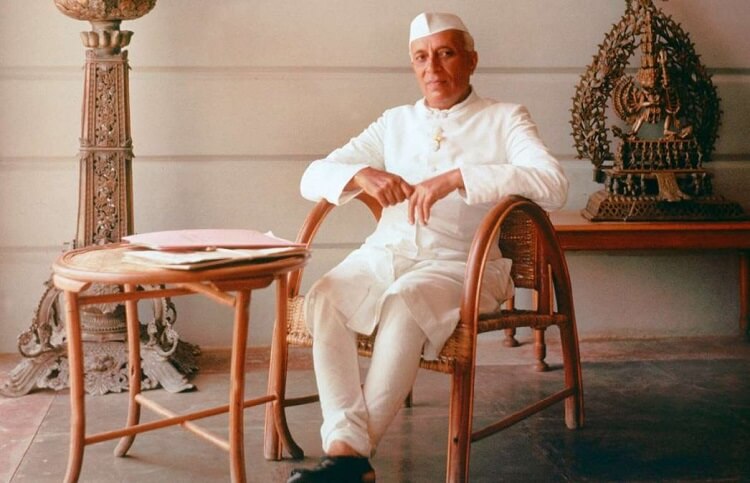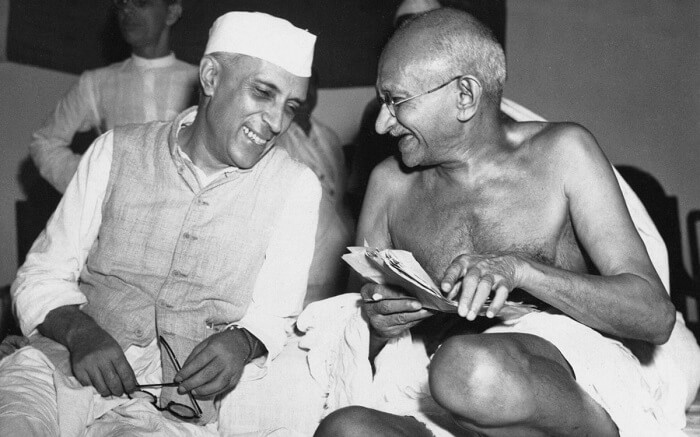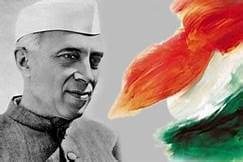Jawaharlal Nehru
Pandit Jawaharlal Nehru is a renowned name in Indian politics. He was India's first Prime Minister and served in that position for his remaining life. Despite being the country's most powerful leader, his heart was like a child's. He became particularly popular with children, so we honor Pandit Nehru's birthday as National Children's Day every year. He is known by the nickname "Chacha Nehru". About Pandit Jawaharlal NehruAfter India's independence, Jawaharlal Nehru became the country's first Prime Minister. His father was a well-known attorney as well as a social worker. Nehru grew up in a rich family and his family comprised of three sisters in addition to him. Nehru Ji was of Kashmiri origin and was a Saraswat Brahmin. Moreover, he acquired his schooling at prestigious national and international schools and institutes. Harrow School provided him with early education, while Trinity College London provided legal education. After that, he went to the University of Cambridge to study law. During his seven-year stay in England, he learned about Fabian socialism and Irish nationalism. 
He was a big fan of 'Rose Flower,' which he kept in his sherwani. He was also very popular amongst children, who fondly called him 'Chacha Nehru.' On November 14th, his birthday is commemorated as Children's Day in honor of this affection. Nehru was also the author of the book 'Discovery of India.' Indira Gandhi was Nehru's daughter. Nehruji had been following the country's struggle for independence since he was a child. Indira Gandhi regarded her father as her guru, and she had learned about the country's politics from Nehru Ji. This was also the basis for her deep affection for the country. After India attained independence, Indira Gandhi became the country's first female prime minister. Indira Gandhi's primary contribution was to promote and build India. Political Life History of Jawaharlal Nehru
Nehru returned to India in 1912 and began practicing law at the Allahabad High Court. In 1916, Nehru married Kamala, a young woman, whereas, in 1917, he decided to join the Home Rule Association. Then in 1919, Nehru Ji met Gandhi, whose ideals inspired him greatly. He gained political expertise only under Gandhi Ji's guidance; this was when Nehru Ji first entered Indian politics. In 1919, Gandhiji spoke against the Rowlatt Act. Gandhi Ji's civil disobedience campaign had a big effect on Nehru Ji. Motilal Nehru and his family joined Nehru Ji in renouncing their fortune and adopting a Khadi lifestyle. In 1920-1922, Nehru became an enthusiastic participant in Gandhiji's 'Non-Cooperation Movement.' During this period, Nehru was arrested for the first time. Also, for two years, in 1924, he was the President of the Allahabad Municipal Corporation, but in 1926, he resigned. Nehru was the General Secretary of the "All-India-Congress" from 1926 until 1928. In Nehru Ji, Gandhiji saw a great Indian leader. Under Motilal Nehru's leadership, the annual session of Congress was conducted in 1928-1929. During this session, two groups emerged: Nehruji and Subhash Chandra Bose. The latter backed the demand for total independence, while Motilal Nehru and other politicians advocated an independent state under government control. Gandhiji identified a midway ground between these two propositions. He stated that Britain would be given two years to grant India sovereignty, failing which the Congress would spark a national conflict. On the other hand, the administration didn't provide a good response. The Congress' annual session was convened at 'Lahore' in December 1929, under the direction of Nehru, and everyone unanimously passed a motion seeking 'PurnaSwaraj.' Nehru flew the flag of independent India at Lahore on January 26th, 1930. Also, the same year, Gandhiji launched the 'Civil Disobedience Movement,' which was so effective that the British administration had to submit to it while making major decisions. When the British government approved the India Act resolution in 1935, Congress resolved to run for office. By keeping out of the polls, Nehru showed his support for the party. In every state, Congress established the government and secured the majority seats. In 1936-1937, Nehru was elected as the President of the Congress. Nehru was jailed in 1942 during the Quit India Movement led by Gandhi, and he was released from prison in 1945. Nehru had a key part in discussions with the government during India's and Pakistan's independence in 1947. Election of the Country's First Prime Minister
At India's independence in 1947, elections were held for the Prime Minister's claim in the Congress, with Sardar Vallabhbhai Patel and Acharya Kriplani gaining the most votes. On Gandhiji's suggestion, Jawaharlal Nehru was chosen as India's first Prime Minister. After then, Nehru became India's Prime Minister three times. By appropriately guiding India after independence, Nehru Ji completed laying the foundations for a strong nation. He also made a significant contribution to India's financial independence and built a solid basis for India's contemporary aspirations. He formed the 'Non-Aligned Association' for peace and organization. They were unable to establish friendly relations with Pakistan and China despite their efforts. Jawaharlal Nehru AwardsIn 1955, India's first Prime Minister, Jawaharlal Nehru, was awarded the highest civilian honor, the Bharat Ratna. Aside from that, he has received several major national and international awards. Jawaharlal Nehru BooksDaughter's name - 1929, Jawaharlal Nehru Vamayya, Glimpses of World History, Away from Politics, Great Men of History, Father of the Nation, My Story, Discovery of India are some of books written by Pandit Nehru. "Letters from father to daughter", written by Nehru to his daughter Indira while in jail is a compilation of letters from father to daughter. Aside from that, the "Discovery of India" is often regarded as his most famous achievement. Jawaharlal Nehru DeathNehru Ji made a concerted effort to strengthen ties with his neighbors, China and Pakistan. His philosophy was that we should love our neighbors as we love ourselves, yet China attacked India in 1962, severely harming Nehru. Good ties with Pakistan have never been possible due to the Kashmir problem. On May 27th, 1964, Nehru died of a heart attack. For the Indian country, his death was a major loss. He is still recognized as a remarkable leader and a country's independence warrior. In his honor, several projects and highways have been built. The Jawaharlal Nehru School, Jawaharlal Nehru Technological University, and the Jawaharlal Nehru Cancer Hospital were established in his honor.
Next TopicSanjay Dutt
|
 For Videos Join Our Youtube Channel: Join Now
For Videos Join Our Youtube Channel: Join Now
Feedback
- Send your Feedback to [email protected]
Help Others, Please Share









